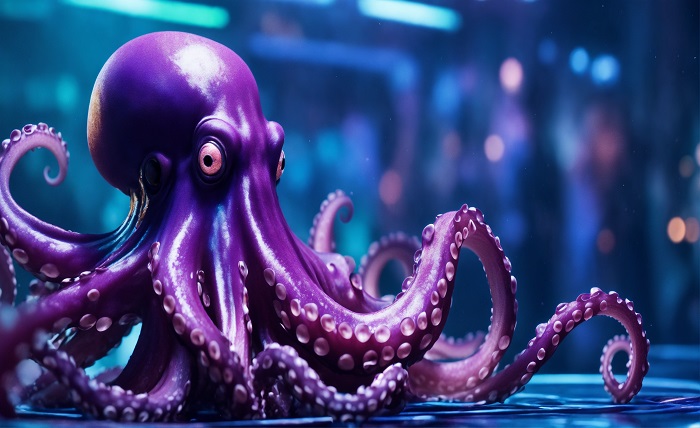Exploring the Fascinating World of Squid Fish

Introduction
Squid fish are among the most intriguing creatures of the marine world. With their elongated bodies, tentacles, and exceptional adaptability, they play a vital role in ocean ecosystems. Will explore various aspects of squid fish, from their biology to their role in human culture.
Biology and Anatomy
Squid fish are cephalopods, a class of mollusks that also includes octopuses and cuttlefish. They have a distinct head, bilateral symmetry, a mantle, and tentacles. Squid are known for their ability to jet propel themselves through the water, a fascinating aspect of their locomotion.
Habitat and Distribution
Squid fish can be found in oceans all around the world, from the deep open seas to coastal waters. They are highly adaptable creatures, living at various depths and often migrating in response to environmental changes and food availability.
Role in the Marine Food Web
Squid fish serve as both predator and prey within their ecosystems. They feed on smaller fish, crustaceans, and even other squid, while they are a crucial part of the diet for many larger marine animals, including sharks, whales, and seabirds.
Squid Fish and Human Consumption
Squid are a popular delicacy across various cuisines globally. Their meat is known for its versatility and is featured in dishes ranging from fried calamari in Mediterranean cuisine to sushi in Japan, highlighting their global culinary significance.
Reproduction and Lifecycle
The lifecycle of a squid fish is both fascinating and unique. They have a short lifespan, with most species living only one to two years. This brief lifespan is accompanied by a single reproductive event after which they typically die, making their lifecycle a dramatic burst of life.
Conservation Challenges
Despite their abundance, squid fish populations face several threats, including overfishing and environmental changes. Conservation efforts are crucial to ensure that squid can continue to thrive without disrupting the delicate balance of marine ecosystems.
Squid in Research and Technology
Squid fish have contributed significantly to scientific research, particularly in the fields of neuroscience and materials science. Their neural structures and camouflaging skin have inspired advancements in both technology and medicine.
Cultural Significance
Squid have held various roles in human culture, from maritime folklore to modern symbolism. They are often depicted in art and literature, symbolizing mystery and flexibility.
Economic Impact
The fishing industry heavily relies on squid fish as a resource. They are one of the most commercially valuable seafoods, with their fishing and sale providing economic livelihoods for millions around the globe.
Future Prospects
The future of squid fish in our oceans depends significantly on how we address the challenges of climate change and fishing pressures. Sustainable practices are essential to maintain not only the populations of squid but also the health of the entire ocean.
Conclusion
Squid fish are not only fascinating marine creatures but also crucial to ecological balance and human industries. Their ability to adapt to various marine environments and their importance in the food chain make them a vital study subject for marine biologists and conservationists. By understanding and respecting squid fish, we can ensure they remain a thriving part of our natural world.
FAQs About Squid Fish
1. How many species of squid are there?
- There are over 300 recognized species of squid, varying greatly in size and habitat.
2. Can squid fish change color?
- Yes, squid are capable of changing color thanks to specialized cells in their skin called chromatophores. This ability helps them communicate and camouflage.
3. What is the largest species of squid?
- The giant squid, which can grow up to 43 feet in length, is considered the largest species.
4. How do squid fish catch their prey?
- Squid fish use their tentacles to grasp prey and then pull it towards their beak-like mouths.
5. Are squid fish endangered?
- While not all species are endangered, certain squid populations are under threat due to overfishing and habitat destruction, necessitating targeted conservation efforts.




